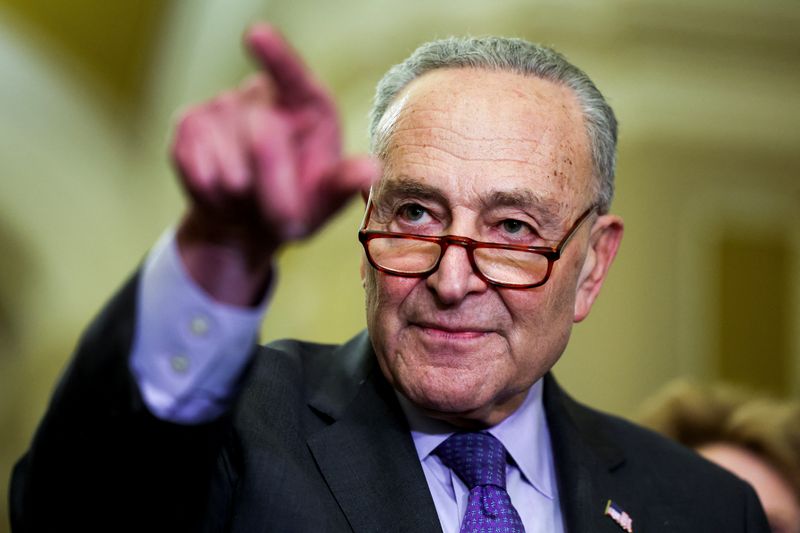
Schumer says US Senate can make progress on TikTok bill
By David Shepardson
WASHINGTON (Reuters) -Senate Democratic Leader Chuck Schumer on Friday outlined a busy agenda for lawmakers returning to Washington, saying they can make progress “on a path forward on TikTok legislation.”
The Senate is returning to work next week after a two-week recess. The U.S. House of Representatives voted 352-65 on March 13 to give TikTok’s Chinese owner, ByteDance, about six months to divest the U.S. assets of the short-video app, or face a ban.
Schumer’s statement did not outline a specific position on TikTok but said “in the weeks and months ahead, we have the opportunity to make progress on bipartisan bills” including a measure on TikTok.
Congressional aides say there is no immediate action planned on TikTok as senators continue to discuss next steps.
Schumer referenced other bipartisan bills where progress is possible including children’s online safety, long-stalled rail safety legislation, low-income internet subsidies, cannabis banking and efforts to “outcompete the Chinese government.”
Last month, Senate Commerce Committee Chair Maria Cantwell said she was considering holding a public hearing on a TikTok crackdown bill and said senators want legislation to address concerns about the app.
“The key point here is getting a tool that can be used to stop foreign actors from doing deleterious things that might harm U.S. citizens,” Cantwell said. “We’re get it get done and we’re not going to take forever.”
The fate of TikTok, used by about 170 million Americans, has become a major issue in Washington where lawmakers have been flooded with calls from users who oppose the legislation.
“A ban on TikTok would violate the First Amendment rights of 170 million Americans,” TikTok said on Friday.
Many lawmakers and the Biden administration say TikTok poses national security risks because China could compel TikTok to share American user data, while TikTok insists it has never shared U.S. data and never would.
TikTok says it has spent more than $1.5 billion on the effort to protect U.S. data and house it in the United States.



